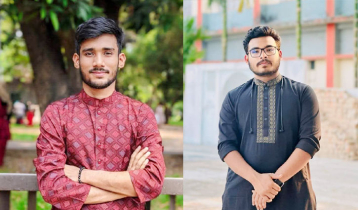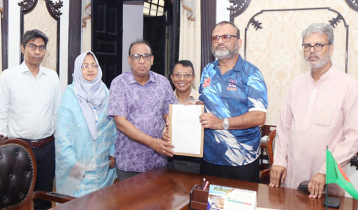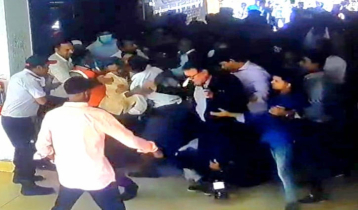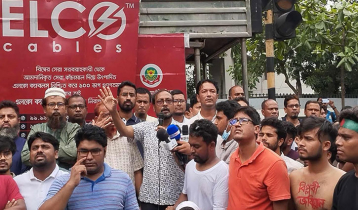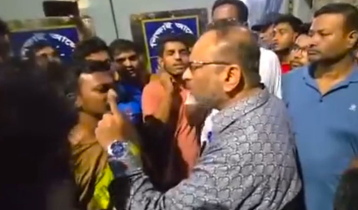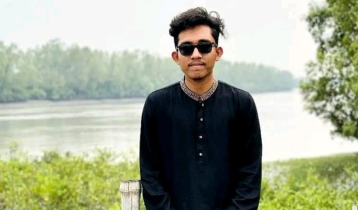Families in Bangladeshi society: Late modernity and Islam
Arifur Rahaman || risingbd.com
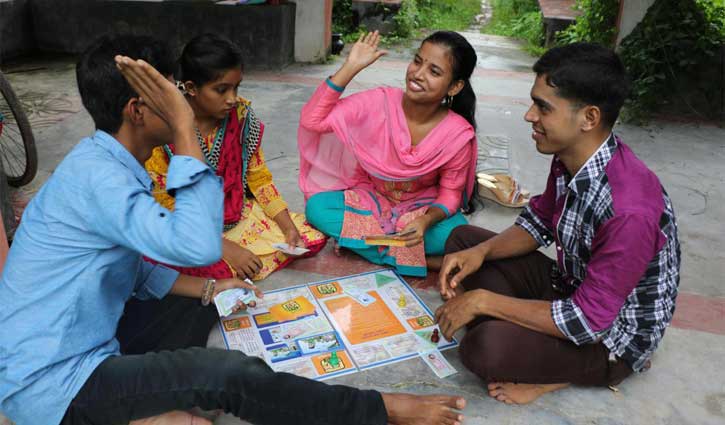
It is obvious today that family and intimate relationships have undergone various significant changes and substantial transformations as a result of global socio-economic development and advances in technology.
The expansion of educational and employment opportunities, the introduction of advanced technologies in agriculture and other production sectors, increased access to development services such as self-employment through microfinance, health, education, and social awareness avenues, and economic and political empowerment among the disadvantaged were the major factors influencing changes in the family pattern in Bangladesh.
Modernization and urbanization are linked to a small family structure. The roles and functions of the family have evolved over time in Bangladesh, in accordance with the changing structure of families.
Women’s empowerment has taken a toll on traditional families. Women’s empowerment can be attributed to a number of factors, including increased educational attainment, capitalistic development, increased female participation, and other societal changes.
Women, like males, are now employed in a variety of professions. Being a man or a woman is no longer a criterion in many professions. Anyone who is skilled and educated is welcome to join. Women are increasingly joining the workforce; not only educated and talented women, but even non-skilled women are doing so. For example, since the 1990s, the expansion of Bangladesh's garment industries has enticed many women to relocate to cities in search of work. Women do not need to be trained or educated to work in this field.
These factors that contribute to women's high mobility and traditional households are dwindling as a result. Women's roles as child-bearers and homemakers are no longer dominant ideologies; instead, we propose a new one: "gender equality."
This new ideology is said to affect the way we perceive family and intimate relationships. In a traditional society in rural Bangladesh, women are said to be dependent on the male member of the family. Their life choices are mostly determined by the male member of the family like father, brother, or uncle. But now, the system is on the verge of diminishing.
Educated and employed women are now free to choose their partner on their own and leave him at any time. Economic solvency is one of the major reasons, assumedly. Divorce, in traditional rural societies, is assumed to be a curse for a woman and she used to be blamed for it. Now, the divorce rate is increasing tremendously. Most women are filing for divorce.
Marrying a divorced woman earlier was prohibited by social norms. Since societies in the Indian sub-continent are strongly influenced by Hindu culture, the attitude towards a divorced or widowed women is very negative. Divorce is considered as “stigma” since it’s hard to marry off a divorced woman for family. The scenario is completely different now.
There are many indications of a contemporary or late modern intimate relationship in Bangladesh society. Our society is constantly undergoing a massive social transformation. The family and marriage traditions are at the risk of dying as a result of the various changes brought about by capitalism and modernization. Despite the fact that many people still adhere to traditional values, a new generation is embracing modern intimate relationship values.
By and by, the adoption of many western values converged with religious values. This results in people being tolerant and open about changes that are taking place. The tradition of purdah restricts the movement of women and make them stay at their home.
But, nowadays many religious families tend to send their daughters to school, college, and universities. Some of the girls maintain purdah at a minimal extent (by wearing hijab) which is not supported by orthodox Islamic values. The intimate relationship, as it was viewed previously, is no longer a taboo or prohibited act for most Muslims.
In Bangladesh, Islamic principles govern many aspects of social life. With the rise of technology and capitalism, however, Islamic doctrines are losing their dominance. Religious leaders were vehemently opposed to the emergence of and acceptance of many facets of modernity, deeming it non-Islamic. In Bangladesh, intimate relationships such as premarital sex and non-commitment relationships were once deemed foreign culture and were outlawed. However, resistance to modernity was never successful, and modernism has infiltrated many parts of our culture. In a nutshell, adaptability to modernity or the integration of modernity and Islamic practices have developed.
It's no surprise that a society dominated by Islam is gradually absorbing non-Islamic practices. The advancement of communication technologies has aided these changes. Dating platforms like Tinder, for example, are ideal for quickly finding a partner. It makes it easier to meet people who share similar interests and to find a companion. Some terms, such as "hook-up," "room-date," and "dating," have grown popular among today's youth.
People deviated from traditional values as a result of such practices. Many young people now regard marriage as "uncertain" or "unimportant" in their lives. Marriage, on the other hand, is more of a choice and a risk. If this trend continues, it will have a significant impact on the future of family and intimate relationships in Bangladesh society. Traditional family structures will be replaced by new ones. The institution of marriage will be shattered, and many people will be hesitant to marry or even marry for the sake of having a kid.
(Arifur Rahaman studies Sociology at the University of Dhaka)
DU/Mahfuz


